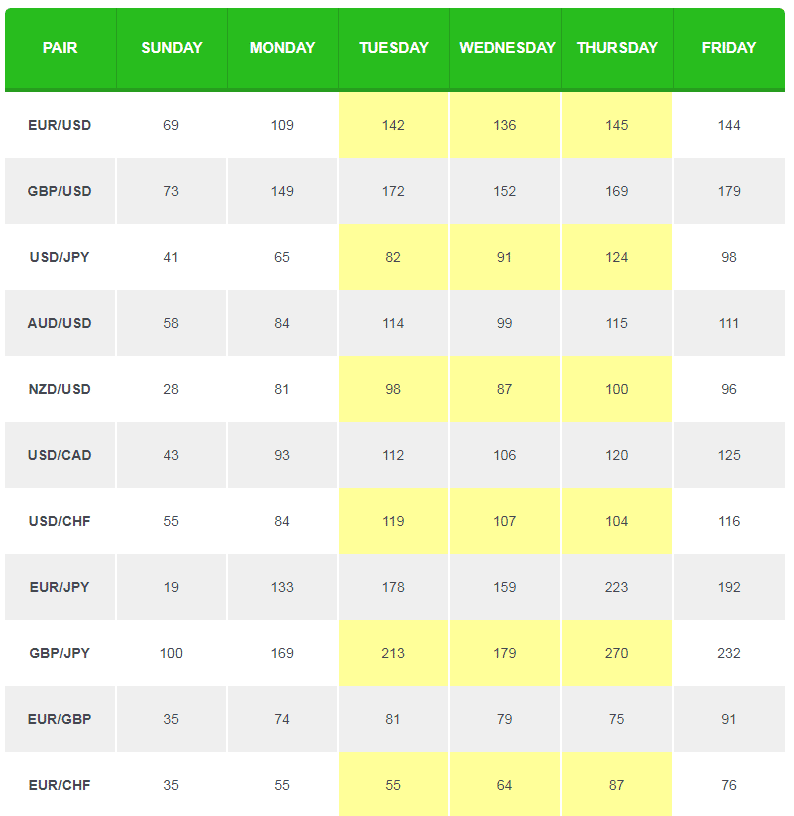
If you want to get involved in the stock market, but don't know where to start, you might be wondering how do I open a brokerage account. This article will show you how to fund your brokerage account and choose a provider. After opening an account, you are able to make your first trades and begin earning money. There are many ways to fund an account if you don't have enough money.
Selecting a broker account provider
It can be challenging to find a brokerage account provider. There are a variety of options available: traditional brokers, online brokers and robo-advisors. Each has its advantages and disadvantages, but the main thing to consider is their fees and features. A robo-advisor is a great option for managing their investments. Some people may find this less convenient, but it can also provide them with greater independence.

Costs of opening a brokerage account
When setting up a brokerage account, you may be asked to describe your overall investment goals and your risk tolerance. Although the terms vary between firms, some common objectives are income, growth, and capital preservation. Other common goals include speculation and moderately aggressive growth. Before opening an investment account you need to consider the fees involved and the timeframe. Lastly, consider how you will manage your cash and access your funds. These decisions will determine the type or account you open.
A brokerage account is an account that allows investors the ability to trade stocks, options, bonds, mutual funds and other investments. The funds are then held in an account with the brokerage firm, where you can access your money whenever you want. Be aware that if there is a gain from your investments, taxes could be due. It is possible to pay high brokerage fees. Make sure to do your research prior opening an account.
Funding a brokerage account
It is easy to fund a brokerage account by linking your bank account online to the brokerage firm. This process should be seamless and as painless as possible. Make sure you do your research on the brokerage company and how they handle payments before you fund your account. There are many options for this type transactions, so be sure to choose the right one. These tips will make it as simple and painless as possible. These are the steps to follow when you're ready for brokerage funding.

When it comes to funding brokerage accounts, one of the biggest mistakes savers make is to rely on retirement accounts to fund their investments. While this may work in the short term, it may not be the best option. If you have surplus cash flows, consider using your brokerage account to invest them instead of keeping them in a low-yielding savings account. Inflation is a drain on cash that can lead to negative returns. Avoid keeping any short-term cash or emergency reserves in your brokerage account.
FAQ
How do I invest on the stock market
Brokers allow you to buy or sell securities. A broker can sell or buy securities for you. Brokerage commissions are charged when you trade securities.
Banks charge lower fees for brokers than they do for banks. Because they don't make money selling securities, banks often offer higher rates.
An account must be opened with a broker or bank if you plan to invest in stock.
If you are using a broker to help you buy and sell securities, he will give you an estimate of how much it would cost. Based on the amount of each transaction, he will calculate this fee.
Ask your broker:
-
You must deposit a minimum amount to begin trading
-
whether there are additional charges if you close your position before expiration
-
What happens if you lose more that $5,000 in a single day?
-
how many days can you hold positions without paying taxes
-
whether you can borrow against your portfolio
-
whether you can transfer funds between accounts
-
What time it takes to settle transactions
-
How to sell or purchase securities the most effectively
-
how to avoid fraud
-
How to get help for those who need it
-
Can you stop trading at any point?
-
How to report trades to government
-
Whether you are required to file reports with SEC
-
How important it is to keep track of transactions
-
Whether you are required by the SEC to register
-
What is registration?
-
How does this affect me?
-
Who is required to register?
-
When should I register?
Why is marketable security important?
A company that invests in investments is primarily designed to make investors money. It does this through investing its assets in various financial instruments such bonds, stocks, and other securities. These securities offer investors attractive characteristics. They may be safe because they are backed with the full faith of the issuer.
The most important characteristic of any security is whether it is considered to be "marketable." This refers to the ease with which the security is traded on the stock market. You cannot buy and sell securities that aren't marketable freely. Instead, you must have them purchased through a broker who charges a commission.
Marketable securities include common stocks, preferred stocks, common stock, convertible debentures and unit trusts.
Investment companies invest in these securities because they believe they will generate higher profits than if they invested in more risky securities like equities (shares).
What is a REIT?
A real estate investment trust (REIT) is an entity that owns income-producing properties such as apartment buildings, shopping centers, office buildings, hotels, industrial parks, etc. They are publicly traded companies that pay dividends to shareholders instead of paying corporate taxes.
They are similar companies, but they own only property and do not manufacture goods.
How does Inflation affect the Stock Market?
Inflation is a factor that affects the stock market. Investors need to pay less annually for goods and services. As prices rise, stocks fall. Stocks fall as a result.
Is stock a security that can be traded?
Stock is an investment vehicle that allows investors to purchase shares of company stock to make money. You do this through a brokerage company that purchases stocks and bonds.
You can also invest in mutual funds or individual stocks. There are over 50,000 mutual funds options.
The key difference between these methods is how you make money. With direct investment, you earn income from dividends paid by the company, while with stock trading, you actually trade stocks or bonds in order to profit.
In both cases, you are purchasing ownership in a business or corporation. If you buy a part of a business, you become a shareholder. You receive dividends depending on the company's earnings.
Stock trading gives you the option to either short-sell (borrow a stock) and hope it drops below your cost or go long-term by holding onto the shares, hoping that their value increases.
There are three types to stock trades: calls, puts, and exchange traded funds. Call and put options let you buy or sell any stock at a predetermined price and within a prescribed time. ETFs are similar to mutual funds, except that they track a group of stocks and not individual securities.
Stock trading is a popular way for investors to be involved in the growth of their company without having daily operations.
Stock trading is a complex business that requires planning and a lot of research. However, the rewards can be great if you do it right. To pursue this career, you will need to be familiar with the basics in finance, accounting, economics, and other financial concepts.
What is the role of the Securities and Exchange Commission?
Securities exchanges, broker-dealers and investment companies are all regulated by the SEC. It enforces federal securities laws.
How are Share Prices Set?
Investors who seek a return for their investments set the share price. They want to make a profit from the company. So they buy shares at a certain price. If the share price increases, the investor makes more money. If the share price goes down, the investor will lose money.
An investor's main goal is to make the most money possible. They invest in companies to achieve this goal. They are able to make lots of cash.
Statistics
- "If all of your money's in one stock, you could potentially lose 50% of it overnight," Moore says. (nerdwallet.com)
- Our focus on Main Street investors reflects the fact that American households own $38 trillion worth of equities, more than 59 percent of the U.S. equity market either directly or indirectly through mutual funds, retirement accounts, and other investments. (sec.gov)
- Even if you find talent for trading stocks, allocating more than 10% of your portfolio to an individual stock can expose your savings to too much volatility. (nerdwallet.com)
- The S&P 500 has grown about 10.5% per year since its establishment in the 1920s. (investopedia.com)
External Links
How To
How to make a trading program
A trading plan helps you manage your money effectively. It helps you understand your financial situation and goals.
Before you start a trading strategy, think about what you are trying to accomplish. You may wish to save money, earn interest, or spend less. If you're saving money you might choose to invest in bonds and shares. If you earn interest, you can put it in a savings account or get a house. If you are looking to spend less, you might be tempted to take a vacation or purchase something for yourself.
Once you have a clear idea of what you want with your money, it's time to determine how much you need to start. This depends on where you live and whether you have any debts or loans. It's also important to think about how much you make every week or month. Income is the sum of all your earnings after taxes.
Next, you will need to have enough money saved to pay for your expenses. These expenses include rent, food, travel, bills and any other costs you may have to pay. These all add up to your monthly expense.
The last thing you need to do is figure out your net disposable income at the end. That's your net disposable income.
This information will help you make smarter decisions about how you spend your money.
You can download one from the internet to get started with a basic trading plan. Ask someone with experience in investing for help.
Here's an example: This simple spreadsheet can be opened in Microsoft Excel.
This will show all of your income and expenses so far. It also includes your current bank balance as well as your investment portfolio.
And here's a second example. This was created by a financial advisor.
It will let you know how to calculate how much risk to take.
Do not try to predict the future. Instead, focus on using your money wisely today.